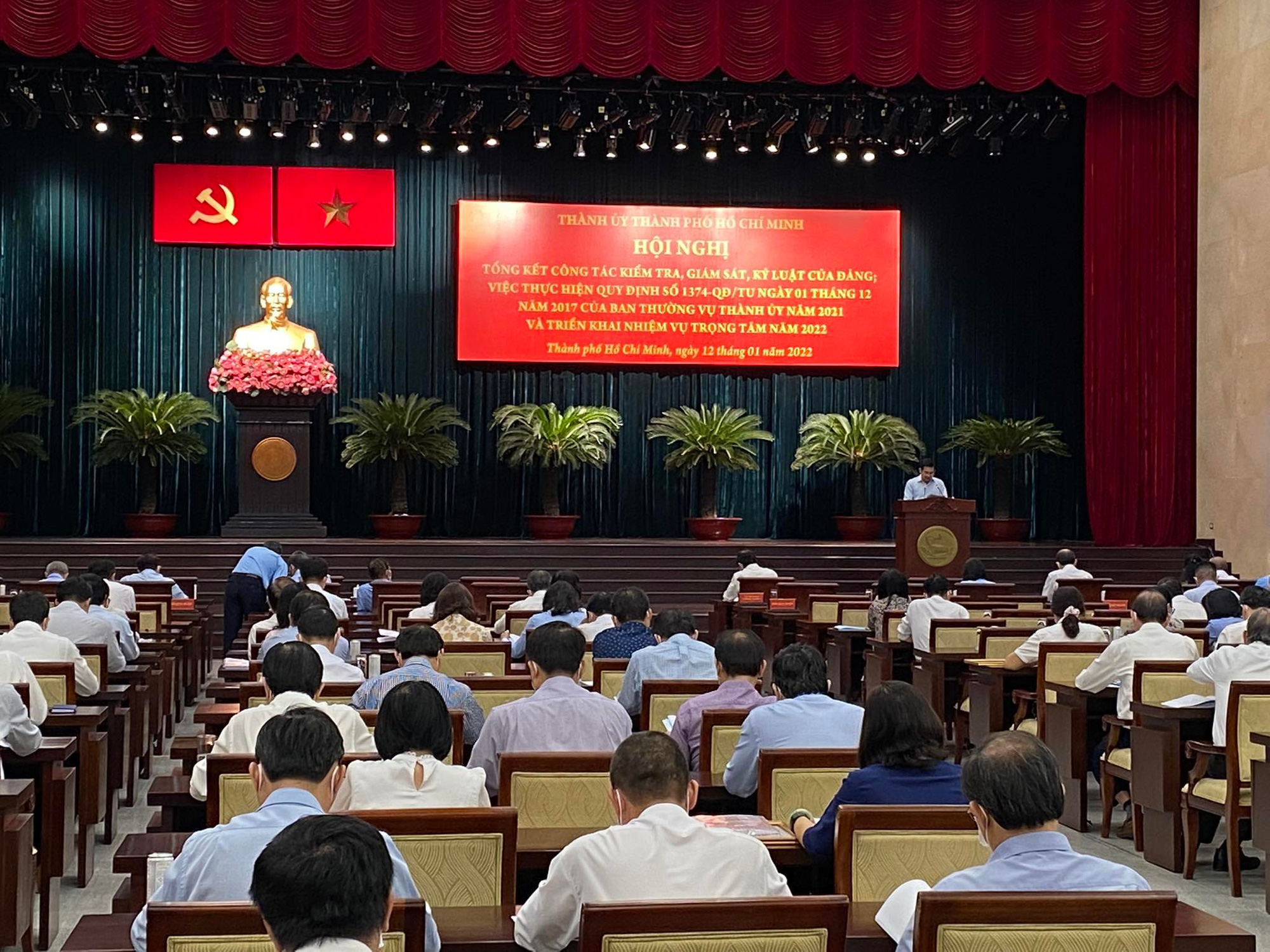Statute of limitations for disciplining violating party organizations or party members in Vietnam
What are the regulations on the statute of limitations for disciplining violating party organizations or party members in Vietnam? - Duy Khang (Tien Giang, Vietnam)

Statute of limitations for disciplining violating party organizations or party members in Vietnam (Internet image)
Regarding this issue, LawNet would like to answer as follows:
1. Who are violating party organizations or party members?
According to Clauses 1 and 2, Article 3 of Regulation 69-QD/TW of 2022, regulations on violating party organizations or party members as follows:
- Violating party organization: means a party organization that does not follow or violates the political platform, the party charter, resolutions, directives, regulations, decisions, regulations, conclusions, guidelines, etc. of the party (collectively referred to as the Party's guidelines and regulations), and the Constitution, laws, ordinances, resolutions, decrees, circulars, directives, regulations, decisions, etc. of the State (collectively referred to as the laws of the State).
- Violating Party members: being party members who do not follow or violate the guidelines and regulations of the Party; the laws of the State; Charter and regulations of the Fatherland Front; and socio-political organizations of which the party members are members.
2. Statute of limitations for disciplining violating party organizations or party members in Vietnam
The statute of limitations for disciplining violating party organizations or party members in Vietnam specified in Article 4 of Regulation 69-QD/TW in 2022 is as follows:
- The statute of limitations for discipline is the time limit specified in this Regulation, upon the expiration of which, the violating party organization or member will not be disciplined.
- The statute of limitations for discipline is counted from the time the violation occurs until the competent party organization concludes that the violation is serious enough to require disciplinary action.
If a party organization or party member commits new violations within the time limit specified at Points a and b, Clause 2, Article 4 of Regulation 69-QD/TW in 2022, the disciplinary statute of limitations for the old violation is recalculated from the time of occurrence of the new violation.
The statute of limitations for disciplining party organizations in violation is as follows:
++ 5 years (60 months) for violations to the extent that a reprimand is imposed.
++ 10 years (120 months) for violations to the extent that a warning must be applied.
++ Do not apply the disciplinary statute of limitations for violations to the extent that disciplinary action must be taken for violations of internal politics, national defense, security, and foreign affairs infringing upon the national interests.
The statute of limitations for disciplining party members in violation is as follows:
++ 5 years (60 months) for violations to the extent that a reprimand is imposed.
++ 10 years (120 months) for violations to the point of warning or dismissal.
++ Failure to apply a disciplinary statute of limitations for violations to the extent that expulsion is required; internal political violations; national defense, security, or foreign affairs violations that infringe upon the interests of the nation; illegal use of diplomas, certificates, or certifications.
3. Principles of disciplining violaing party organizations and party members in Vietnam
Principles for disciplining violating party organizations and party members Article 2 of Regulation 69-QD/TW in 2022 are as follows:
- All party organizations and party members are equal before the Party's discipline. Party organizations and party members that violate the guidelines and regulations of the Party and the laws of the State must consider and enforce discipline in a fair, accurate, and timely manner.
- Disciplinary enforcement must comply with principles, processes, procedures, and authority according to the Party's regulations.
- When considering discipline, it must be based on the content, motive, nature, extent, consequences, cause of violation, specific circumstances, aggravating or mitigating circumstances, awareness, attitude of self-criticism, acceptance of criticism, and results of correction and overcoming defects, violations, and consequences caused.
- A violation can only be punished once with a form of discipline. When considering disciplinary action at the same time, if there are two or more violations, each violation shall be considered, concluded, and decided collectively by the highest disciplinary form; do not separate each violation to enforce different forms of discipline and discipline multiple times.
- After 12 months from the date of publication of the disciplinary decision or the decision to settle the disciplinary complaint (except for the disciplinary decision on expulsion of a party member or a disciplinary decision on dissolution of a party organization), if the party organization or party members do not complain, do not re-offend, or commit no new violations to the point of disciplinary action, the disciplinary decision shall automatically cease to be effective.
- If a party organization or party member is unfairly disciplined, the party organization that issues a disciplinary decision must cancel or change the disciplinary decision accordingly;
If the party organization fails to do so, the superior party organization has the authority to decide and, at the same time, considers the responsibility of the party organization that has issued the unjust or wrongly issued disciplinary decision. If there are violations to the point of disciplinary action, they will be handled according to regulations.
- If the disciplined party organization has transferred, split, merged, or terminated its operation, the announcement of the disciplinary decision shall be made in the party organization that has received the transfer, split, merger, or the immediate superior party organization of that party organization.
- Discipline of party organizations must clearly consider the responsibility of the organization, and at the same time consider the responsibility of each individual involved in order to discipline party members who violate, especially the responsibility of the head.
Party members in a disciplined party organization must take responsibility for the content of the violation and the form of discipline of that party organization and must record it in the party member's resume; Party members who are not personally disciplined will still be considered by the competent party organization and perform cadre work according to regulations.
Party members who do not agree with or are not directly related to violations of the party organization must also clearly state it in their resume.
- Party members who violate the law must be strictly handled according to the provisions of law; Party members who violate the law to the extent that they have to be examined for penal liability, are wanted, or are sentenced by a court to a penalty of non-custodial reform or higher, shall be expelled from the Party;
If the punishment is lighter than non-custodial reform, depending on the content, nature, degree of consequences, cause of violation, and aggravating or mitigating circumstances, the Party discipline shall be enforced accordingly.
If there is a loss of finances and property for the Party, the State, organizations, and individuals, responsibility and compensation must be considered.
- Party discipline does not replace administrative discipline, corporate discipline, or legal sanctions.
If a Party member is disciplined by the party, the Party committee managing the party member must promptly direct or request a competent state agency or socio-political organization within 30 days from the date of publication of the Party discipline decision. Administrative and mass discipline (if any) must follow the regulations of state agencies and mass organizations.
When state agencies, the Fatherland Front, socio-political organizations, and law enforcement agencies enforce discipline, prosecute the accused, or examine them for penal liability for cadres, civil servants, public employees, members, union members, and employees who are party members, they must immediately notify in writing the party organization managing that party member.
Within 30 days from the date of receipt of the notice, the party organization managing its members must decide to enforce Party discipline.
- In the same case with many party members violating, each party member must be disciplined for his or her violations.
- After a Party member changes jobs, resigns, or retires, if he discovers that he has committed a violation in his old agency or unit to the point of being disciplined, he/she shall consider disciplinary action in accordance with the Party's regulations and the State's laws.
- Failing to mobilize, rotate, appoint, confer, or promote military ranks; conferring, awarding, and recognizing titles of the Party and State to Party members who are being considered and disciplined by the Party organization.
- In case of not being disciplined, or being exempt from discipline:
+ Party members are women who are pregnant, on maternity leave, and raising children under 12 months old or a male party member (in case his wife dies or due to other objective or force majeure reasons) raising a child under 12 months old, the discipline has not been considered.
+ Party members who are seriously ill and are undergoing inpatient treatment at the hospital will not be disciplined. Only when their health is stable (discharged from the hospital) will they be disciplined.
If a violating Party member has died, the party organization shall consider and draw conclusions but do not decide on discipline, except in cases of particularly serious violations.
+ Party members who are declared missing, if detecting violations, still have to consider and draw conclusions but have not yet disciplined.
+ Party members implement proposals on innovation and creativity according to Conclusion 14-KL/TW dated September 22, 2021 of the Politburo, permitted by a competent authority, but if damage occurs, the competent authority shall clearly identify objective and subjective causes and make an objective and comprehensive assessment;
If the policy has been properly implemented, with a pure motive, for the common good, the discipline will be exempted or reduced responsibility.
+ Violations caused by complying with the wrong guidelines, decisions, or orders of organizations or superiors or by being coerced but having proactively and promptly reported them in writing to competent organizations or agencies that know their opinions and proposals before implementation will be exempt from discipline.
- Cases of land rent exemption and reduction under the latest regulations in Vietnam
- Economic infrastructure and social infrastructure system in Thu Duc City, Ho Chi Minh City
- Regulations on ordination with foreign elements in religious organizations in Vietnam
- Increase land compensation prices in Vietnam from January 1, 2026
- Determination of land compensation levels for damage during land requisition process in Vietnam
- Who is permitted to purchase social housing according to latest regulations in Vietnam?
-

- Emergency response and search and rescue organizations ...
- 10:29, 11/09/2024
-

- Handling of the acceptance results of ministerial ...
- 09:30, 11/09/2024
-

- Guidance on unexploded ordnance investigation ...
- 18:30, 09/09/2024
-

- Sources of the National database on construction ...
- 16:37, 09/09/2024
-

- General regulations on the implementation of administrative ...
- 11:30, 09/09/2024
-

- Notable new policies of Vietnam effective as of ...
- 16:26, 11/04/2025
-
.Medium.png)
- Notable documents of Vietnam in the previous week ...
- 16:21, 11/04/2025
-
.Medium.png)
- Notable documents of Vietnam in the previous week ...
- 16:11, 02/04/2025
-
.Medium.png)
- Notable new policies of Vietnam to be effective ...
- 16:04, 02/04/2025
-
.Medium.png)
- Notable new policies of Vietnam effective from ...
- 14:51, 21/03/2025

 Article table of contents
Article table of contents
